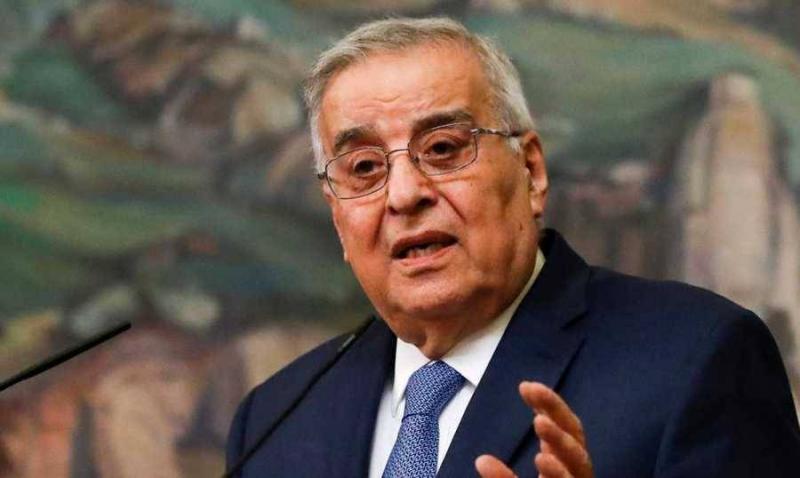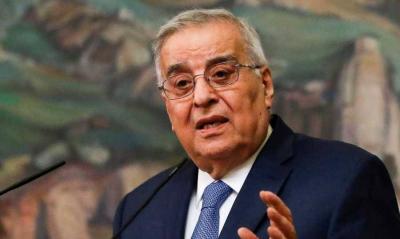On the second day of his visit to New York, following a meeting with the French Foreign Minister, Minister Bouhabib requested during his meeting with Austrian Foreign Minister Alexander Schallenberg to use her friendship with Israel to achieve a fair and comprehensive solution that guarantees stability and establishes a two-state solution. He briefed him on the challenges stemming from the Syrian displacement crisis in Lebanon and the necessity to change the approach to addressing the displacement crisis to facilitate assistance for them in their home country. Minister Bouhabib also consulted with Jordanian Deputy Prime Minister and Foreign Minister Ayman Safadi, exchanging views and data regarding the latest developments in Gaza and the region, emphasizing the importance of stopping the war and the dangers of its continuation, along with the need for a comprehensive resolution to the causes of the conflict through ending the occupation and establishing the Palestinian state.
Additionally, Minister Bouhabib met with Turkish Foreign Minister Hakan Fidan, where they agreed on the importance of Palestinian unity as a fundamental entry point to regain rights and achieve the promised Palestinian state. Minister Bouhabib delivered Lebanon's statement at the ministerial meeting of the UN Security Council in New York regarding the situation in the Middle East, explaining Lebanon's stance on the failure of the policy of seeking temporary fixes whenever the pace of conflict intensifies. He stated that the Palestinian issue is the key to peace and the gateway to security in the Middle East, advocating for the end of the Israeli occupation of Palestinian, Lebanese, and Syrian territories so that "we can live together and recognize each other according to international legitimacy resolutions." He stressed that there is no sustainable peace without justice for the Palestinians. Half measures and temporary settlements only lead to wars and destruction.
Minister Bouhabib expressed concern in his speech about the miscalculation of playing on the edge of the abyss, which could drag the entire region back to the Stone Age, as senior Israeli officials continually threaten Lebanon. He emphasized that this war, which we are diligently working to prevent and endeavoring to urge all relevant parties not to fall into the trap of Israeli leadership seeking to continue and expand the war, will be different in terms of its geographical scope, the number of fronts, and the level of cross-border participation. It will not be a picnic for the Israelis as some hot-headed individuals, whose political survival relies on stoking its flames, imagine.
Furthermore, Minister Bouhabib mentioned the historic opportunity for sustainable calm along Lebanon's southern borders. Lebanon does not want war and has never sought it, nor does it seek it today. Lebanon's vision for achieving lasting security and stability in southern Lebanon is based on the comprehensive implementation of Resolution 1701, within a complete framework with clear and public international guarantees, as follows:
- First: The demarcation of the international southern borders established in 1923 between Lebanon and Palestine, reaffirmed in the armistice agreement signed between Lebanon and Israel on the Greek island of Rhodes under the supervision of the United Nations on March 23, 1949, and referenced in all relevant international resolutions. This entails the full and explicit commitment of both countries to those borders. This requires completing the agreement on all 13 disputed border points, building on the initial approval to delineate borders in seven of them, under the supervision of UNIFIL.
- Second: A definitive halt to Israeli violations, which have reached around 30,000 incursions since 2006, in land, sea, and air, regarding Lebanon's sovereignty and internationally recognized borders, in addition to not using Lebanese airspace to bomb Syrian territories.
- Third: Support from the United Nations and friendly countries for the Lebanese government in asserting its authority over all Lebanese territory by strengthening the armed forces, particularly by enhancing the deployment of the Lebanese army south of the Litani River and providing it with necessary manpower and equipment in cooperation with UNIFIL, ensuring that there is no weapon without the approval of the Lebanese government and no authority other than that of the Lebanese government.
- Fourth: Facilitating the safe and dignified return of displaced persons from the border areas they fled since October 7, 2023.
- Fifth: Stopping the war on Gaza, which would facilitate the implementation of this vision and initiate a rapid mechanism to find a long-term solution to the Israeli-Palestinian conflict, in accordance with relevant UN resolutions.
Minister Bouhabib concluded his speech by calling for a genuine opportunity for peace before it is too late. The events of October 7 did not occur in a vacuum, and these tragedies will recur in a more intense and horrific manner if we do not reach a permanent, just, and comprehensive solution based on Israel's full implementation of all relevant UN resolutions.
At the end of the second day of the visit, he met with the Norwegian Foreign Minister Espen Barth Eide and British Minister of State Lord Ahmad of Wimbledon, exchanging ideas about the situation in the region, in addition to meeting with Swiss Foreign Minister Ignazio Cassis, where they discussed issues related to the Middle East and the situation in southern Lebanon. He also met with U.S. Deputy Secretary of State for Civilian Security, Democracy, and Human Rights Uzra Zeya, where the importance and centrality of the U.S. role for stability in the Middle East and containing the conflict through the application of a diplomatic solution were discussed. He concluded his meetings with a discussion with the Chinese envoy to the UN Security Council, Ambassador Zhang Jun.




